New twist in AstraZeneca COVID-19 vaccine
AstraZeneca’s COVID-19 vaccine works better with three month lag between first and second doses, latest trials show as two European pharma giants join forces to combat virus variants.
National
Don't miss out on the headlines from National. Followed categories will be added to My News.
AstraZeneca’s COVID-19 vaccine works better if there is a three month time lag between the first and second doses the latest trial results show.
The original human clinical trials found the vaccine was 62 per cent effective when the second dose was given 28 days after the first.
The new research shows efficacy climbs to 91.7 per cent when there is a three month time lag between doses.
And, it found just a single dose of the vaccine offered considerable protection.
Three weeks after being given a single dose of the vaccine it had an efficacy rate of 76 per cent and measurements over a 90 day period showed the efficacy rate did not wane.
“Vaccination programs aimed at vaccinating a large proportion of the population with a single dose, with a second dose given after a 3 month period is an effective strategy for reducing disease, and may be the optimal for rollout of a pandemic vaccine when supplies are limited in the short term,” the study authors said.
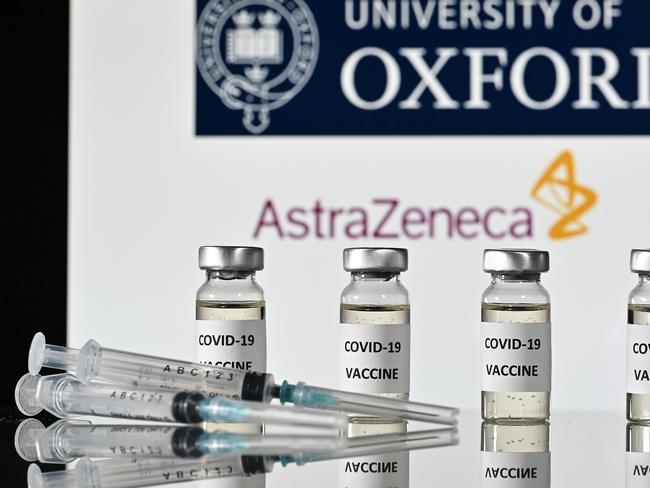
The trial also confirmed the vaccine was 100 per cent effective in protecting against severe disease, hospitalisation and death.
Meantime, Australia expects to have data definitively putting to rest any concerns around vaccinating older people AstraZeneca’s COVID-19 by the time the rollout comes.
Five European countries have ruled against using that injection in older people but Australian experts say it does not appear to be dangerous and is “far better than nothing”.
Australia has purchased 53 million doses of the AstraZeneca vaccine, which federal Chief Medical Officer Professor Paul Kelly said would be offered to most Australians.
Leading vaccine experts told News Corp yesterday only a very small number of people aged over 65 were given the AstraZeneca vaccine in human clinical trials so it is unclear how well it works in this age group.
Further trials are underway involving the elderly and the vaccine is being used in elderly people in the UK.
“Currently, there is insufficient data to make a call one way or the other, definitively … it’s whether that decision is correct for that country at that time,” University NSW virologist Professor Bill Rawlinson said.
European countries had supplies of other more effective vaccines which gave them reason to opt out, he said.
Australia will get five million doses of the superior Pfizer vaccine, which should cover all aged care residents and some of those aged over 70.
Elderly people have poorer responses to all vaccines because as humans age, their immune system weakens.
University Sydney infectious diseases expert Professor Robert Booy said the AstraZeneca vaccine in the elderly was “better than nothing”.
“It’s not better than nothing it’s far better than nothing,” he said.
Trial results released last year showed “people in their 60s, who got unwell, were protected against hospitalisation and death in the AstraZeneca studies”.
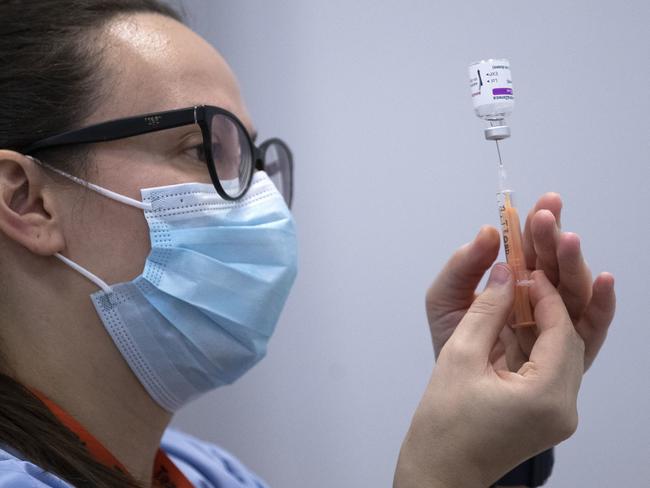
Caution about the use in the elderly did not mean the vaccine had side effects or safety problems in that group.
“We can say that people in their 60s, who got unwell, were protected against hospitalisation and death in the AstraZeneca studies,” Professor Booy said.
Other laboratory research indicated the vaccine was likely to work in the elderly, he said.
“We take the blood of older people over 65 who’ve been immunised and we mix it in the lab with the virus to see if the virus is neutralised and the evidence from those studies is very reassuring that people who have been vaccinated produce antibodies in their blood which can then be used in the laboratory to neutralise the virus,” he said.
“Will the vaccine work in the elderly? My suggestion is almost certainly. But we can’t be sure as yet but we will very soon have data, by the time we’re wanting to vaccinate people in GP surgeries. It’ll be imagined at least at the end of March,” he said.
BRITAIN, GERMANY TO DEVELOP JAB TO COMBAT VARIANTS
It comes as British pharmaceutical group GlaxoSmithKline and German biotech firm CureVac on Wednesday (local time) announced plans to jointly develop a coronavirus vaccine with the potential to counter multi-variants of COVID-19.
“The development program will begin immediately, with the target of introducing the vaccine in 2022, subject to regulatory approval,” a joint statement said.
GSK will also support the manufacture this year of up to 100 million doses of CureVac’s first generation COVID-19 vaccine, it added.
The collaboration, building on an existing relationship, is to develop next generation COVID-19 vaccines “with the potential for a multivalent approach to address multiple emerging variants in one vaccine”.
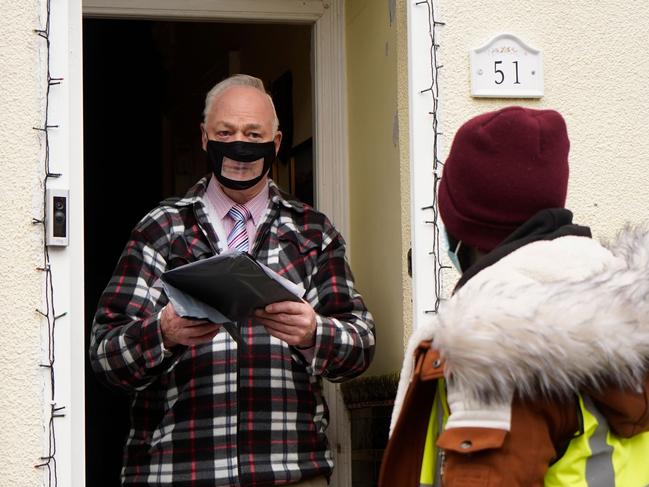
The pair noted that “the increase in emerging variants with the potential to reduce the efficacy of first generation COVID-19 vaccines requires acceleration of efforts to develop vaccines against new variants to keep one step ahead of the pandemic”.
GSK chief executive Emma Walmsley said “next generation vaccines will be crucial in the continued fight against COVID-19”.
The value of the new collaboration was put at 150 million euros ($A237 million). “We are very pleased to build on our existing relationship with GSK with a new agreement,” said CureVac chief executive Franz-Werner Haas.
“With the help of GSK’s proven vaccine expertise, we are equipping ourselves to tackle future health challenges with novel vaccines.”
A more contagious COVID-19 variant first spotted in Britain has spread across the globe, according to the World Health Organisation.
Another variant, detected initially in South Africa, has raised greater alarm among researchers over its possible impact on immunity.
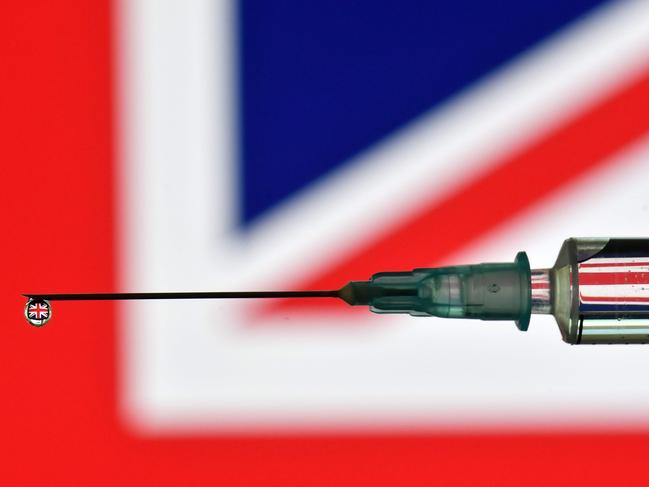
ASTRAZENECA STUDY BACKS UK JABS DRIVE
Meanwhile, Britain on Wednesday (local time) seized on a new study that said the Oxford/AstraZeneca COVID vaccine significantly reduces virus transmission and is highly protective after a single dose, after stinging criticism about its effectiveness from EU leaders.
British Health Secretary Matt Hancock said the research, which has yet to be peer-reviewed, vindicated its massive vaccination drive, which has so far seen some 10 million people receive a jab.
“It does show the world that the Oxford jab works, it works well,” he told BBC radio.
“It slows transmission by around two-thirds, so it categorically supports the strategy that we’re undertaking.”

The European Medicines Agency has recommended the Oxford/AstraZeneca jab for adults of all ages last week -- more than a month after independent regulators in the UK gave it the green light.
But several countries have advised against administering it to older people. Germany said it will not advise over 65s to get it while Italy’s medicines agency recommended alternatives for people aged over 55.
President Emmanuel Macron, who is under pressure for the slow roll-out of jabs across France, claimed the vaccine was “quasi-ineffective” for the over-65s.
But the vaccine developers refuted his claim, saying the uncertainty was driven by a lack of data in older age groups rather than any evidence that it did not work.
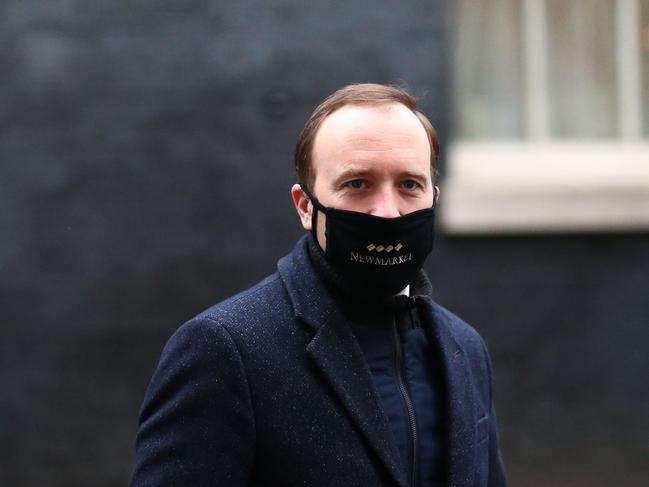
“From an immunological perspective, the older adults seem to respond in a very similar way to younger adults,” Mene Pangalos, AstraZeneca’s executive vice-president of biopharmaceuticals research and development, told a webinar Wednesday.
More data on older people should be available within weeks with the completion of a US trial and early results from Britain’s vaccination drive, added Andrew Pollard, director of the Oxford Vaccine Group.
The survey covered 17,177 participants in Britain, Brazil and South Africa over the period up to December 7, 2020. None of the participants were hospitalised.
Originally published as New twist in AstraZeneca COVID-19 vaccine


